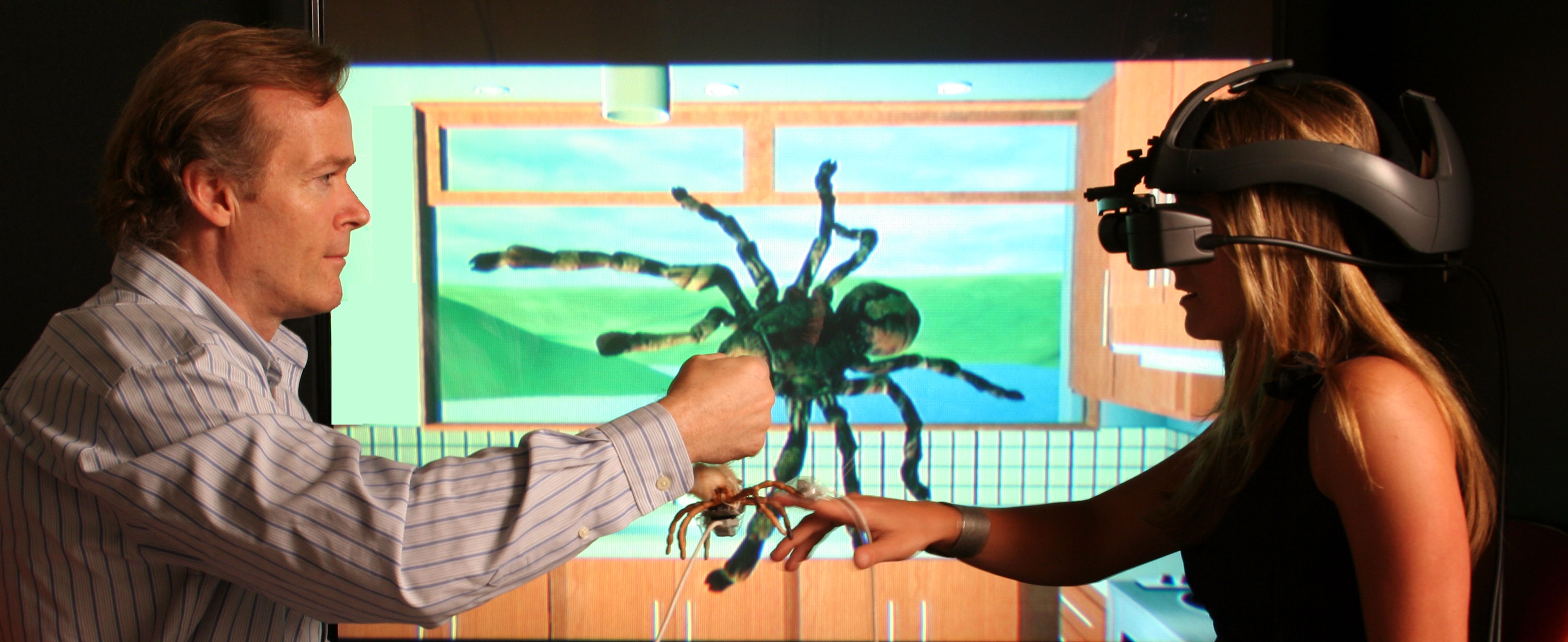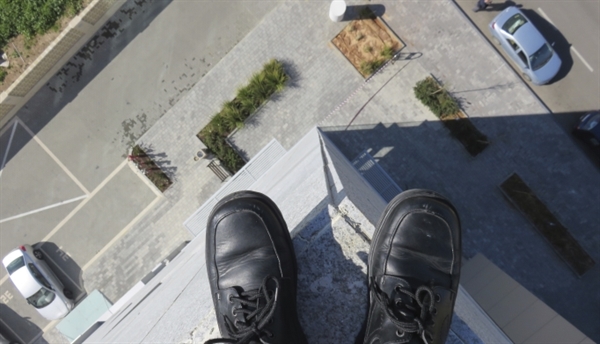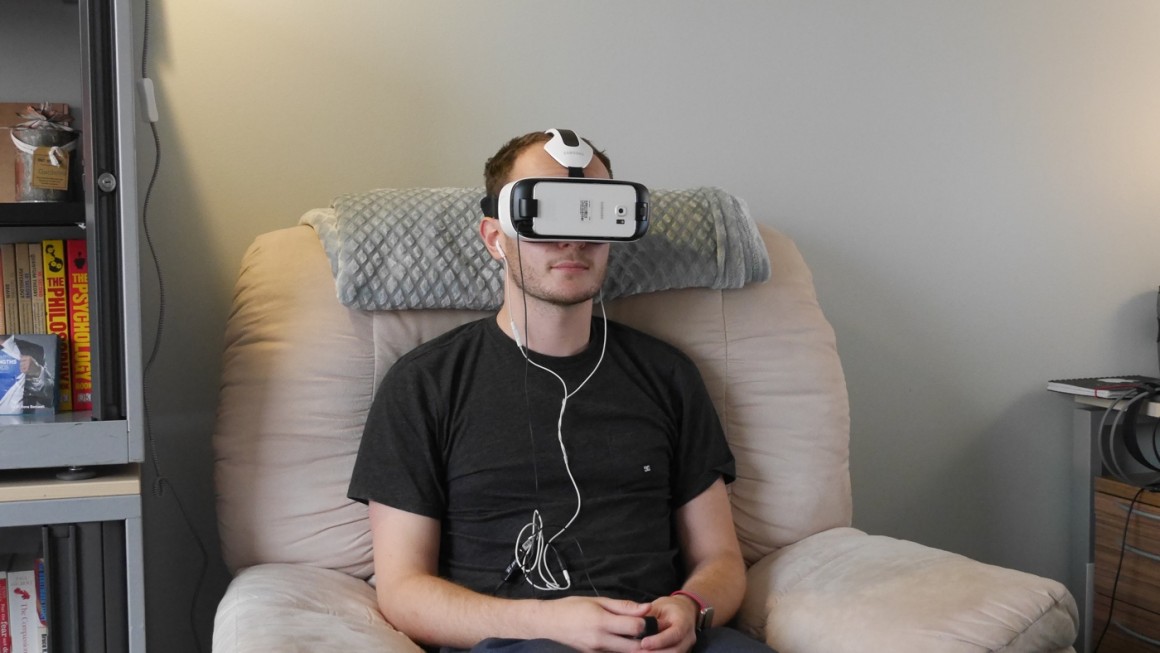Researchers have been experimenting with virtual environments in an attempt to cure people of their fears.

Afraid of speaking in public? Engage in virtual reality speaking engagements over and over, empowering you with techniques to manage your fears. Afraid of Flying? Ride in a virtual plane until it feels like brushing your teeth.
This is everything we’ve been saying about how virtual reality is going to change our world, but it’s already happening.
The logic behind virtual reality therapy (VRT) is debatable, but the case studies are interesting regardless. More importantly, what do we stand to lose by trying? If our fears our so unbearable we are willing to try VRT, could they worsen?
The Logic

It stands to reason, repetition is the secret sauce behind mastery. By this logic, if you could experience a version of your fears in repetition, in a safe environment, you may grow germane to those fears.
It works like cognitive therapy treatments, where patients repeat the details of a traumatic event over and over until they become facts of a story to which they no longer attach meaning.
Another comparison, albeit somewhat macabre, is the desensitization of gamers towards violence.
Experts debate the validity of both examples. It may not serve to reduce our trauma repeating events over and over. Our brains may be able to separate video game violence from reality.
It is beyond the scope of this blog to debate these things, but if you believe virtual adaptation to scary environments will cure your fears, then why not give it go?
What have you got to lose but time and money?
The Practice

VRT is nothing new. The University of West Virginia started experimenting with it years ago. The Virtual Reality Medical Center in San Diego has been in practice for over a decade.
For many VRT centers, they’ve been limited by existing technology. Cheap, accessible virtual reality headsets, like the Oculus Rift, are recent phenomena.
One criticism of VRT is that if it’s not real enough, it won’t work. Your brain would have to accept the presented reality, but most clinicians apply more than just VRT.
They offer breathing and mindfulness techniques, teach you better self-talk, then measure the results.
If metrics like your heart rate and blood-pressure improve when you’re in the virtual world, then you could render similar results in the real world.
The Cases

A quick scan of the Internets will render several pages of case studies supporting VRT.
In a recent article appearing in Wareable, a man named Luke Johnson sought help from Michael Carthy, a therapist employing VRT to abate fears. His story is much like you would expect.
Despite Johnson’s best efforts to curb his fears, which he describes as irrational, he was unable to make improvements.
Johnson’s fears, prior to treatment, went beyond just being afraid. He admits he would break into uncontrollable crying mid-flight.
After sufficient sessions of VRT, Johnson was able to fly with a reasonable amount of fear. His story is anecdotal, for sure, but also successful.
He’s not alone.
The Risks

The argument against VRT is that repetitive exposure to a trauma could exacerbate your traumatic response. You may find yourself more afraid of flying, more afraid of public speaking.
Fear is not logical. It can spread.
You may find your fears spilling into other areas. That said, our searches for “VRT made my fears worse,” and similar search criteria are unsuccessful in rendering results.
The potential risks, it seems, have not yet surfaced.

The future of wearable technology will be in some ways less is more, incorporating the tech with our clothing or skin. Virtual reality is a long way of from going stealth.
Meanwhile, expect to hear an ever growing scope of VR applications. Gaming will acclimate us to the virtual world, possibly even fund development of other applications, but gaming is only the beginning.
Are you ready to jump out of a virtual plane now?